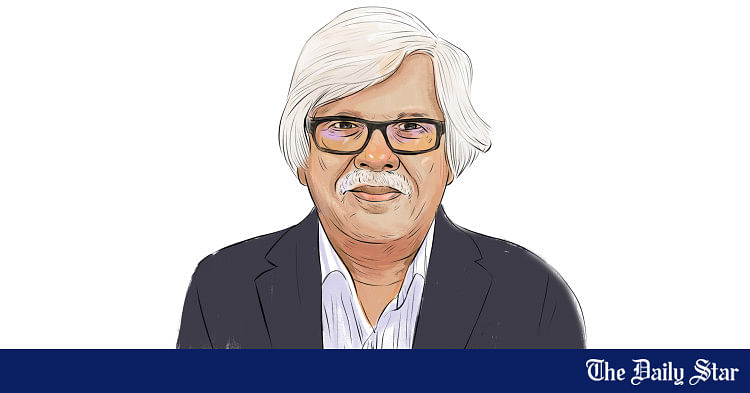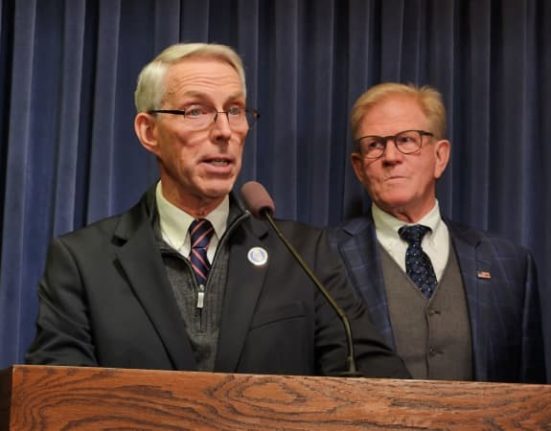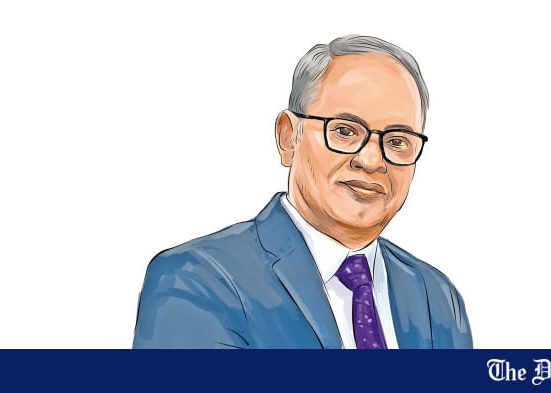Bangladesh is dealing with one of its most challenging political and economic shifts, and the US tariff hike to 37 percent on its exports could worsen the situation.
This could turn out to be a big problem for the economy, especially for the readymade garment (RMG) industry, which is Bangladesh’s primary export item.
If this tariff rate ends up being imposed, it could badly hurt the industry and cause foreign investors to lose interest in the country.
“This tariff is not just a policy shift—it is a crisis,” said Anwar-Ul-Alam Chowdhury (Parvez), president of the Bangladesh Chamber of Industries (BCI), in an interview with The Daily Star.
“It could trigger factory closures, massive job losses, and long-term damage to our export base,” he said.
In his assessment, Chowdhury warned that unless six critical fault lines were urgently addressed, Bangladesh risks slipping into a cycle of stagnation—while regional competitors surge ahead.
Four of the six issues are the deterioration of law and order, growing challenges in compliance and labour regulation reforms, inadequate gas and power supplies, and vulnerabilities in the financial and banking sectors.
The remaining two are burdensome and inconsistent taxation policies and the need to safeguard the future of exports and manufacturing.
Chowdhury commented that rising crime and violence—often linked to elements of the past regime—along with politicised and demotivated law enforcement agencies and bureaucratic inefficiencies, were undermining law and order.
This is also weakening governance and eroding public and investor confidence. “We are at a crossroads. Bangladesh must act boldly and decisively—or risk losing relevance,” he said.
According to Chowdhury, the shifting geopolitical landscape—triggered by US-China trade tensions, war-induced supply chain realignments, and evolving Indo-Pacific strategies—has opened a rare window for Bangladesh.
He warned that delays in reform would divert investment flows to better-prepared neighbours like Vietnam, India, and Indonesia. Industries in Bangladesh are under immense pressure, he said.
The RMG sector, which generates more than 80 percent of the country’s export earnings, has reported over $400 million in production losses due to factory shutdowns caused by labour unrest and compliance uncertainties, said the BCI president.
The textiles, ceramics, and leather sectors are also facing a severe energy crisis, with frequent power cuts and gas shortages forcing operations to be scaled down, he said.
Many manufacturers are struggling to stay afloat amid surging costs of imported liquefied natural gas (LNG) and delayed government response, he said.
“We are paying the price for years of underinvestment in energy and infrastructure. Insufficient energy supply is the single biggest threat to our industrial backbone,” he added.
Rolling blackouts and erratic gas supply have disrupted production across sectors. The reliance on costly LNG imports has proven unsustainable. “If we don’t secure energy, we can’t grow. It’s that simple,” he said.
In spite of recommendations made by policy experts for years, Bangladesh continues to rank poorly in the ease of doing business, bogged down by delays in tax refunds, customs clearance, and factory registration processes, he said.
Although Bangladesh has a young and growing labour force, employers struggle to find job-ready graduates. “We are producing degrees, not skills,” said Chowdhury.
He advocated for stronger links between universities and industries, reforms in technical education, and private sector-led training programmes. “Our demographic dividend is becoming a liability. That must change,” he said.
The BCI president highlighted that overdependence on garments for foreign currency earnings is a critical vulnerability, especially in the post-least developed country (LDC) era when duty-free market access will be phased out.
He said Bangladesh’s LDC graduation would revoke critical trade benefits, including waivers and preferential tariffs enabled by the Trade-Related Aspects of Intellectual Property Rights (TRIPS) agreement, which establishes minimum standards for intellectual property protection.
“Graduation is irreversible. Without preparation, we will lose markets,” he said.
The pharmaceutical industry remains heavily reliant on imported active pharmaceutical ingredients (APIs) and policy exemptions. Post-graduation, production costs will rise, and registering products in overseas markets will be more difficult, he said.
“If we do not prepare the sector, we risk being overtaken by Indian and Chinese firms—both locally and globally,” he cautioned.
Chowdhury also emphasised how Bangladesh was losing ground to regional peers.
He drew comparisons with India, where states like Gujarat, Maharashtra, and Andhra Pradesh were offering subsidies of 30 percent to 45 percent on capital machinery, power rebates, and low-interest loan support to exporters.
“Vietnam delivers a container to the US at $1,100. We pay $1,800 from Chattogram. It’s a logistics nightmare—and disastrous for competitiveness,” he added.
He called for deregulation in the energy sector, negotiations for free trade agreements (FTAs), digitalised customs processes, and incentives for new export sectors.
“The delay is costing us billions in lost orders, jobs, and reputation. You can’t expect investors to commit when the political future is uncertain,” added Chowdhury. The flow of foreign direct investment (FDI) has slowed as investors express concern over institutional unpredictability, contract enforcement, and rising political risk, he said.
“We need rule-based governance, timely justice, and a clear anti-corruption framework. Only then will capital flow back,” he stressed.
The BCI president warned that the current uncoordinated approach was pushing global buyers to opt for other countries having smoother compliance regimes.
Urgent government action is needed to negotiate relief, expand into new markets, and restore investor confidence. “Reform is no longer optional—it’s our only way forward,” said Chowdhury.







